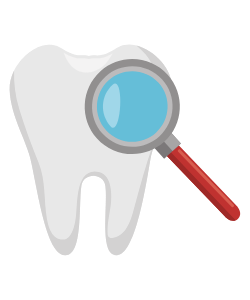Considering that you have probably been buying toothbrushes for yourself and your loved ones for as long as you can remember, it can be quite a shock to learn that you could have been making serious mistakes with every purchase that you have made! And this is because a good number of people exclusively take into account the brand, colour and aesthetic preferences, which is not the right way to go about it.
Instead, ergonomics and other factors need to be considered to ensure that the toothbrush you use is thorough in eliminating all the grime in your mouth without causing your oral tissue any harm. To help you learn more, this article outlines a few of the things that you need to know about buying the right toothbrush.
What size of toothbrush head should you choose?
Contrary to popular belief, a large toothbrush head does not automatically mean that the more surface area of your teeth is being cleaned. Instead, a head that is too large for your unique needs could end up causing more problems than benefits. To begin with, a head that is too big for your mouth will make it default for you to manoeuvre it in your mouth. As a result, you find that you are not thorough when you move the brush upwards, downwards and sideways, which leaves room for plaque to collect in parts of your mouth you cannot reach.
Secondly, an oversized head can injure the soft tissue in your mouth and you find that your gums and inner cheeks are being harmed each time you brush your teeth, and this increases the likelihood of bacteria infecting the open sores. To ensure that you are always buying the right size toothbrush head, you may want to consult with your dentist on which options are suited to you.
Which category of bristles will be best?
Most toothbrushes are available in three main types of bristles: hard, soft and medium. And these names imply, the soft type is the most pliable when compared to the hard bristles that are characterised by firm bristles. The mistake that some adults make is to think that the harder the bristles are, the more effective they are at eliminating plaque and food debris that is stuck between their teeth but this is not true.
The reality is that the hard bristles end up causing you dental problems such as gum recession, especially when they are used with a considerable amount of force. With time, you may develop tooth sensitivity as the roots of your teeth are gradually exposed due to the use of these hard bristles. The best option would be to choose the soft variety. Admittedly, the soft bristles do not last for long, but since you are supposed to change your toothbrush every few months, this is not a drawback to be wary of.
Contact a dentist for more information.
Share
